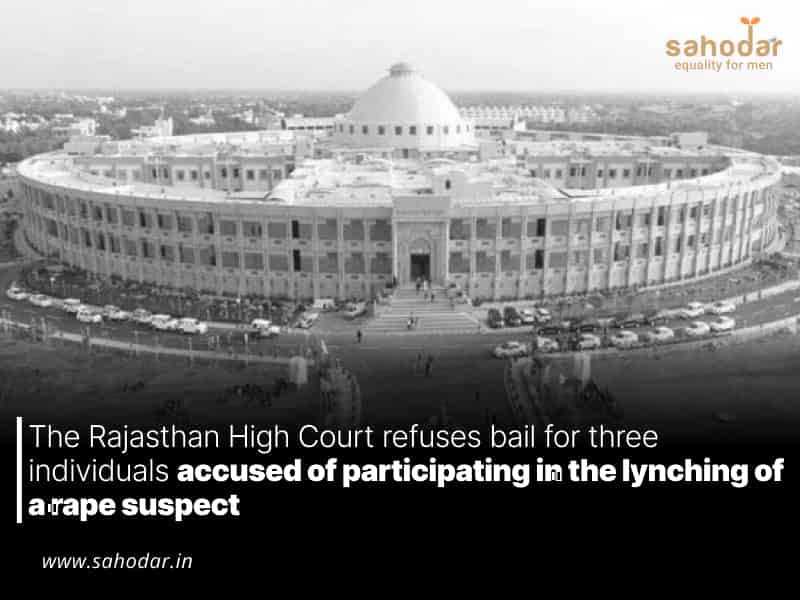Justice Anil Kumar Upman observed that mob-lynching is unacceptable in a civilized society and that we are not living in a barbarian society where people are allowed to take law in their own hands.
Recently, the Rajasthan High Court rejected bail for three men accused of lynching a man suspected of raping the minor daughter of one of them [Darshan Singh and Ors. v State of Rajasthan and Anr.].
Justice Anil Kumar Upman expressed that mob-lynching is intolerable in a civilized society, emphasizing that we do not inhabit a barbaric society where individuals can usurp the law for themselves.
“This mob-lynching practice is not acceptable in civilized society at any cost. We are not living in a barbarian society. People are not allowed to take law in their hands so also, they should also not be allowed to create hindrance in working of the police, who in the instant case, reached at the spot but was prevented in discharging their official duties of maintaining law and order situation,” the order dated March 14 stated.
The initial complaint (FIR) against the defendants outlined charges under various sections of the Indian Penal Code (IPC) and the Scheduled Caste/Scheduled Tribe (Prevention of Atrocities) Amendment Act, relating to rioting, wrongful confinement, theft, extortion, murder, criminal conspiracy, and other offenses.
Following the investigation, the chargesheet filed mirrored the allegations in the FIR, except for the charge under Section 382 of the IPC.
The defendants applied for bail in the trial court, which was denied. Dissatisfied, they approached the High Court, arguing they were wrongly implicated. They claimed the deceased, after allegedly raping the minor daughter of one of the defendants, was injured while attempting to flee from the siblings’ house.
They also highlighted that a separate FIR had been lodged for the rape, suggesting the deceased’s guilt. Additionally, they emphasized that village residents had already assaulted the deceased before the defendants’ involvement was alleged, with no eyewitnesses confirming their participation.
The third defendant asserted no connection to the crime, being merely a neighbor of the others. Moreover, the fourth defendant, a woman, had been granted bail earlier due to her gender and lack of specific involvement.
However, the Public Prosecutor contended that the defendants not only beat the deceased but also obstructed the police from transporting him to a hospital, leading to his demise.
The Court acknowledged the allegations of severe assault and obstruction of police duties, remarking that society cannot condone vigilante justice.
It further clarified that legal proceedings stemming from the rape FIR would proceed independently, and the defendants couldn’t seek refuge in that complaint.
Considering the seriousness of the charges and the circumstances, the Court declined bail, upholding the lower court’s decision.

